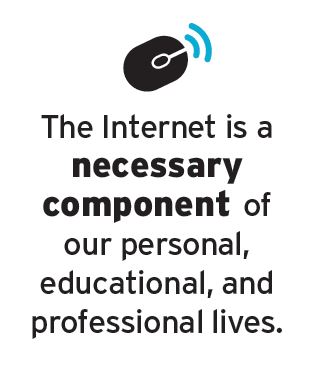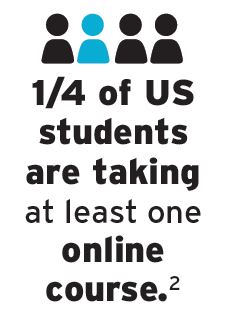WCET partners with the Online Learning Consortium (OLC) and the University Professional and Continuing Education Association (UPCEA) in creating a unified voice on pending federal regulations for today’s higher education students.
By working together, we can have more impact on the process. We also avoid having competing priorities or contradictory recommendations. Today, we release a jointly-authored two-page handout focused on issues that we think are essential in addressing the needs of the 21st Century Learner in the upcoming Higher Education Act.
What is the Higher Education Act?
Last year we celebrated the 50th anniversary of the Higher Education Act of 1965. The Act was the beginning of Congress’s attempt to codify the relationships that the federal government has with higher education. Over the years, the rules for institutions to remain eligible to offer federal financial aid have grown. Congress often uses it to impose additional requirements on colleges. Although the Act is expected to be “reauthorized” every five years, the last time such action was taken was 2008.
With the great leadership of Senators Alexander (R-TN) and Murray (D-WA), the Senate Health, Education, Labor, and Pensions (HELP) Committee can build on their initial work last year to “reauthorize” the Act.
And there is hope that this could happen soon. Along with other Committee members, these two Senators have uncharacteristically worked across the aisle. Last year it led to similar reauthorization legislation for the Elementary-Secondary Education Act.
What’s Included in the Handout?
It’s a challenge to communicate complex ideas quickly. Our goal was to make this piece an introduction to the issues that will get the reader to question pre-conceived assumptions.
 On one side of the handout is a series of infographics highlighting the differences in higher education from 1965 to today. We provide several statistics that show the changed nature of both the learner and the use of educational technologies in shaping the learning experience. It’s important to look beyond online learning to how educational technology is having an impact on teaching in any venue.
On one side of the handout is a series of infographics highlighting the differences in higher education from 1965 to today. We provide several statistics that show the changed nature of both the learner and the use of educational technologies in shaping the learning experience. It’s important to look beyond online learning to how educational technology is having an impact on teaching in any venue.
On the other side is a list of “Guiding Principles”:
- Fairness – Do not treat students differently based on mode of instruction.
- Innovation – Allow greater flexibility for innovations to be introduced.
- Accountability – Hold colleges to standards of student performance with regulations narrowly tailored to address specific concerns.
The bulleted lists of issues with each principle will be addressed more completely in the future with help from our friend at the Cooley, LLP law firm. Watch for more details on these items.
What’s Next and What Should You Do?
We will share this document with anyone who can help our joint cause.
We will provide additional details on specific issues.
You should use the handout as an informative resource with your government relations staff, Congressional membership, Congressional staffers, or anyone else who can support us.
Finally, thank you to my friends at OLC and UPCEA for partnering. Together, we are stronger!
Russ
Russ Poulin
Director, Policy and Analysis
WCET
If you like what we do, join WCET.

 On one side of the handout is a series of infographics highlighting the differences in higher education from 1965 to today. We provide several statistics that show the changed nature of both the learner and the use of educational technologies in shaping the learning experience. It’s important to look beyond online learning to how educational technology is having an impact on teaching in any venue.
On one side of the handout is a series of infographics highlighting the differences in higher education from 1965 to today. We provide several statistics that show the changed nature of both the learner and the use of educational technologies in shaping the learning experience. It’s important to look beyond online learning to how educational technology is having an impact on teaching in any venue.